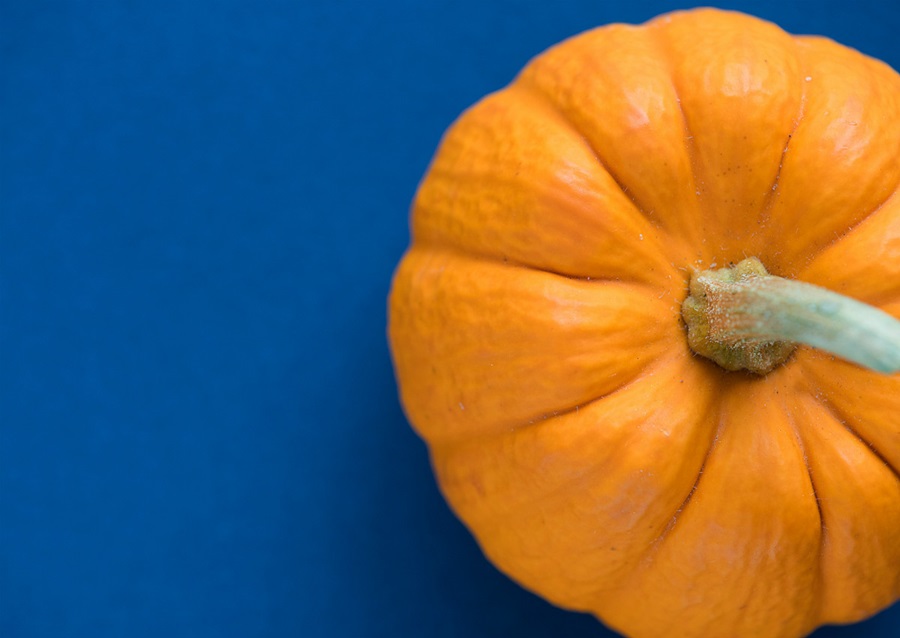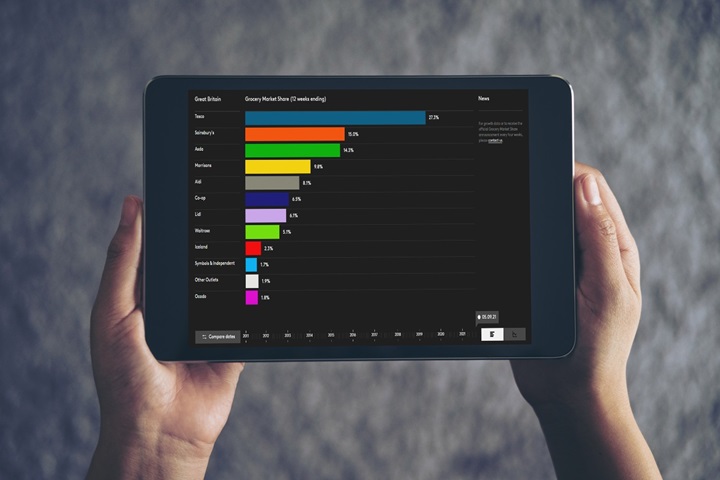The latest grocery market share figures from Kantar show year-on-year supermarket sales grew by 1.3% during the past 12 weeks as Sainsbury’s returns to growth and Brexit deadline day approaches.
The grocery market seems to have finally edged out from under the shadow of 2018 and tough comparisons with the strong summer sales of last year. Sainsbury’s performance reflects this – increasing sales at its fastest rate since October 2018 to make it the only big four retailer to achieve growth. The grocer recently announced plans to phase out its value ‘Basics’ line which made it into 12% of shopping baskets during the past 12 weeks, so it will be interesting to see how replacement brands like ‘Stamford Street’ and ‘J James and family’ fare as they become more widely available.”
As growth accelerates in the overall market, Brexit uncertainty continues. Well-documented concerns about the availability of popular products in the event of a no-deal Brexit have not yet translated into a consistent increase in purchasing. Sales of dry pasta and healthcare products over the past four weeks were 9% and 7% higher than the same time last year, but those of canned products fell by 2% and frozen food by 1%. While a quarter of British consumers say they are considering stockpiling*, it seems they are waiting to see how the next few weeks play out and we expect if they take any action it will be closer to the deadline if a chaotic trading situation looks increasingly likely.
One event people are already planning for on 31 October is Halloween, spending a collective £1.5 million on pumpkins in the past 12 weeks. Those sales are 29% higher than at this point before Halloween last year and retailers should be taking note and aiming to capitalise on the celebration in the coming weeks.
The proportion of sales on promotion increased for the first time in nearly four and a half years this period to 32.3%, driven by Tesco’s ‘100 years of value’ campaign and Sainsbury’s ‘Price Lockdown’. The performances of Tesco, Asda and Morrisons all improved compared with last month, but sales are still down year on year. Tesco sales declined by 0.2% as its market share was reduced to 27.0%. The announcement that Dave Lewis will depart as Tesco chief executive next year has inspired inevitable reflection on his tenure and it’s worth noting that the retailer’s sales were in freefall when he joined in September 2014 – dropping 4.5% year on year. Since then Tesco’s absolute and relative performance has improved and profitability has returned, but its market share is down from 28.8% at the start of his time there.
Sales at Asda fell by 0.9% during the past 12 weeks, dropping 0.3 percentage points of market share to 15.0%, while Morrisons remains behind the rest of the pack, declining by 1.8% with a market share of 9.9%.
Lidl and Aldi continue to gain share. The discounters now account for a combined 14% of UK grocery sales which is 0.8% percentage points higher than last year, an increase that’s worth nearly one billion pounds annually. While traditionally known for its own label ranges, Lidl’s 8.2% growth was boosted by sales of branded goods which grew twice as quickly.
Meanwhile, Aldi grew by 7.3% during the past 12 weeks as it attracted more new customers than any other retailer with 689,000 additional shoppers. Its small but growing ‘Everyday Essentials’ also added an extra £18 million in sales.
Co-op grew at its fastest rate since April at 3.9% as the convenience retailer’s £5 ‘Super saver deal’ drove up sales of fresh pizza by 20% and ice cream by 17%.
Online specialist Ocado continued its run as Britain’s fastest-growing supermarket – a position it’s held since May 2019 – as its growth sped up slightly to 13.3%.
Iceland sales rose by 0.5%, supported by widely available coupons, while Waitrose declined by 1.1% and its market share slipped 0.1 percentage points to 5.1%.
*Kantar Brexit Barometer. A total of 1,144 interviews were conducted online among adults living in Great Britain between 5 and 9 of September 2019.
Editors notes
An update on inflation
Grocery inflation now stands at 0.8%† for the 12-week period ending 6 October 2019. Prices have been rising since the 12 weeks to 1 January 2017, following a period of grocery price deflation which ran for 30 consecutive periods from September 2014 to December 2016. Prices are rising fastest in markets such as canned fish, crisps and frozen fish, while falling in canned cola, instant coffee and chilled fruit juices.


